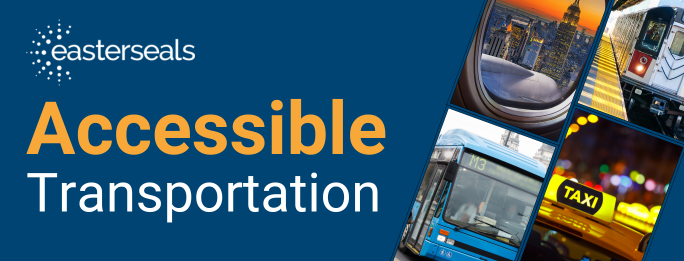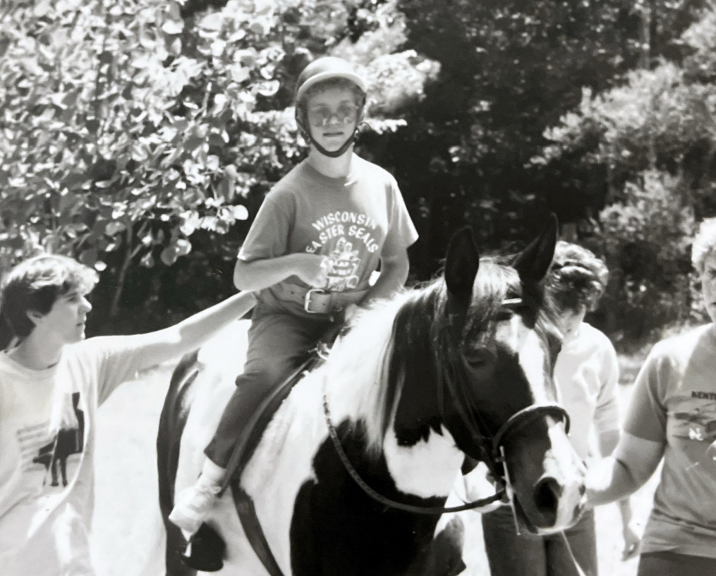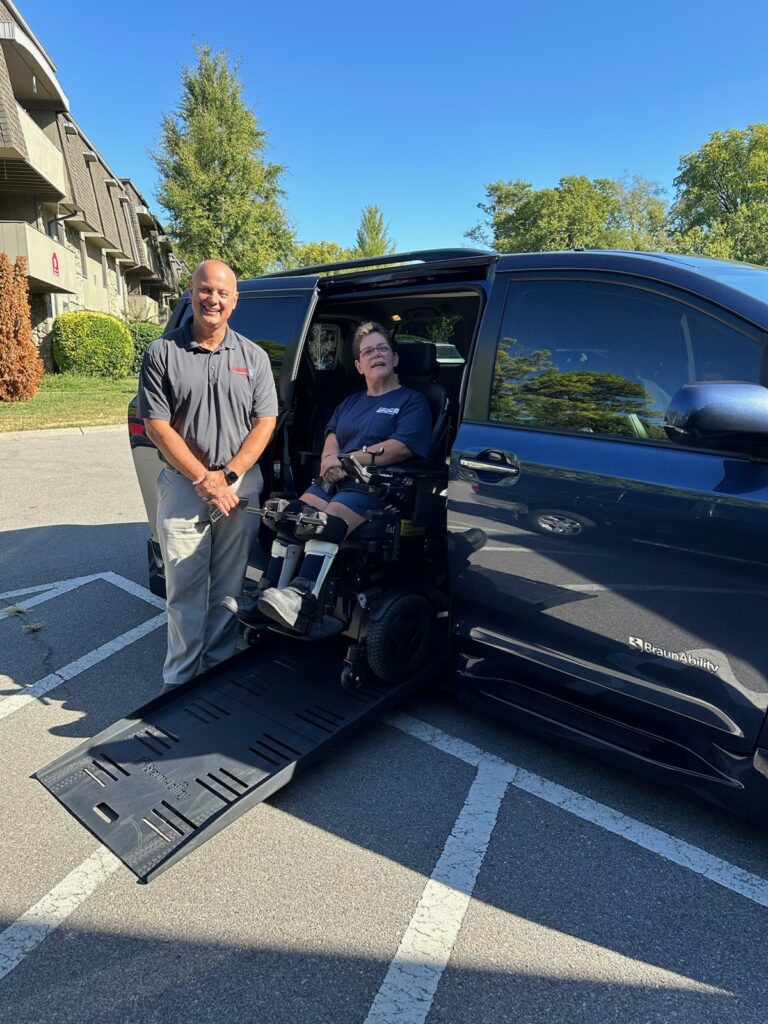Able and Ready: Former Easterseals Camper is Setting a New Standard for Accessible Transportation
by Erin

Rhonda Clark, 55, has spastic cerebral palsy. “I wasn’t supposed to live past 48 hours. I jokingly tell people I have cerebral palsy, but it doesn’t have me.”
Rhonda started going to Easterseals camp in Wisconsin from 1981 to the early 90s. She grew up in an abusive household, and the two weeks at camp were her reprieve. A week before camp ended, she cried knowing she had to go home. She shares how Easterseals camp allowed her to do exciting things she wouldn’t have otherwise, such as adaptive zip lining and swimming. She even met her first boyfriend at camp. “No one would judge me [there]; everyone was the same,” she said.

Rhonda at Easterseals Camp, 1983
Easterseals camp taught her independence and gave her the confidence to navigate inaccessibility and ableism as an adult. “I’m not one to just settle for what I’ve been told I can have. I’ve never been. And I think going to Easterseals camp as a kid made a huge impact on me in that respect, because that’s where I got my first taste of living independently.”
Rhonda currently lives in Nashville and moved there 28 years ago after graduating from the University of Wisconsin Green Bay in 1995. Her goal after college was to work in country music, and Rhonda was promised a job at a record label. However, fate intervened, and she learned of the label closing right before getting on the plane to Nashville. She had already shipped her belongings to her new home, including her power wheelchair, which she didn’t want to risk getting damaged on the flight. Despite knowing few people in the city, she didn’t want to be stranded in Wisconsin without her power chair, so she went ahead with the move.
“I literally pedaled my resume down music row,” she said. Rhonda was able to land a few gigs, and then spent two and a half years with United Cerebral Palsy in Middle Tennessee, where she helped book talent for their telethons.
Rhonda also volunteered for Easterseals, where she met her dear friend, Beverly Jones. Beverly was in a video for Holly Dunn’s song “I Am Who I am,” which Easterseals played during a telethon. The two met backstage where Rhonda was volunteering and have been a constant in each other’s lives ever since.
After her time at United Cerebral Palsy, Rhonda worked for Country Music Television for seven years, and then at a children’s hospital for 11 years.
Now, Rhonda is starting a non-emergency transportation company in Tennessee, Able and Ready Transportation Incorporated, to address the poor transportation options for disabled individuals – especially wheelchair users like herself.

Rhonda in her accessible van
Paratransit is only available in Davidson County, and Tennessee is a big state – not everyone can live in that service area. She shared that transportation is particularly challenging because of the lack of sidewalks and limited public transit outside of Davidson County. For example, Rhonda would be able to drive her wheelchair to her dog’s vet, which is less than a mile away, but there are no sidewalks to get her there safely; she has to rely on someone else to drive her, which impacts her independence and autonomy.
Her goal with Able and Ready Transportation Incorporated is to offer on-demand, low-cost, 24/7 access to accessible transportation for any reason – not limited to medical transportation. This service could help in a vast number of circumstances, such as when someone’s accessible vehicle breaks down on the road, potentially leaving them stranded, or getting them to work while their car is in the shop. It can unite friends for a night on the town – without a restriction on what time to go home. Able and Ready could also work with hotels or airports to ensure they have accessible shuttle options for wheelchair users. “I just want people to know they can live, work and be who they were created to be. And be with who they want to be with, when they want to be with them,” Rhonda shared.
Rhonda began working on Able and Ready in 2019 and was forced to delay plans because of the pandemic. She is now working with a small team to raise funds and navigate complicated laws around transportation and for-profit businesses. To deploy her services across county lines, which is vital to her mission in reaching all Tennesseans, there is a legal requirement to be a for-profit business.
She started raising money on GoFundMe but found that service was taking too much of a cut. She then moved to fundraising directly on the Able and Ready website. Able and Ready was able to fund one van, but there is still a need for more vans, office space, and staff. These overhead costs would put her in $300,000 in debt, but she is slowly raising that money to get them truly started.
Rhonda’s ultimate goal is to set a precedence in Tennessee and catapult this work to other states.
She proudly states, “somebody said that I set the bar too high, and I said, well, somebody’s got to.”






